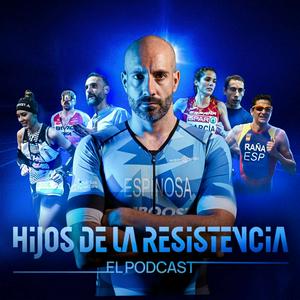¡Vótame en los Premios iVoox 2025!
En este episodio charlamos con Jere Mateo, un auténtico ejemplo de resiliencia y superación. Tras un brutal accidente de montaña que lo dejó en coma durante un mes, Jere volvió a empezar de cero. Su cuerpo, su mente y su vida entera cambiaron para siempre.
Hoy se ha embarcado en el desafío Ocean’s Seven, considerado el Everest de la natación en aguas abiertas: 7 travesías en océanos helados, sin neopreno, enfrentándose a corrientes, temperaturas extremas y al propio miedo.
Instagram de Jere Mateo: https://www.instagram.com/jereswim/
————————-———————
🐘 20% en FANTÉ durante el mes de junio con el código PODCASTHDLR
https://fanteofficial.com/
🏃♂️ Apúntate a nuestra Newsletter aquí:
https://hijosdelaresistencia.com/un-email-semanal
📰 Newsletter para entrenadores:
https://hijosdelaresistencia.com/para-entrenadores-que-quieren-dejar-un-legado/
————————-———————
🏁 Entrena con nosotros:
https://hijosdelaresistencia.com/formulario/
📚 Accede a La Academia
https://academia.hijosdelaresistencia.com/
__
También pueden seguirnos en nuestras redes sociales 👇
https://www.instagram.com/hijosdelaresistencia_oficial/
https://www.instagram.com/ruben.espinosa_/


